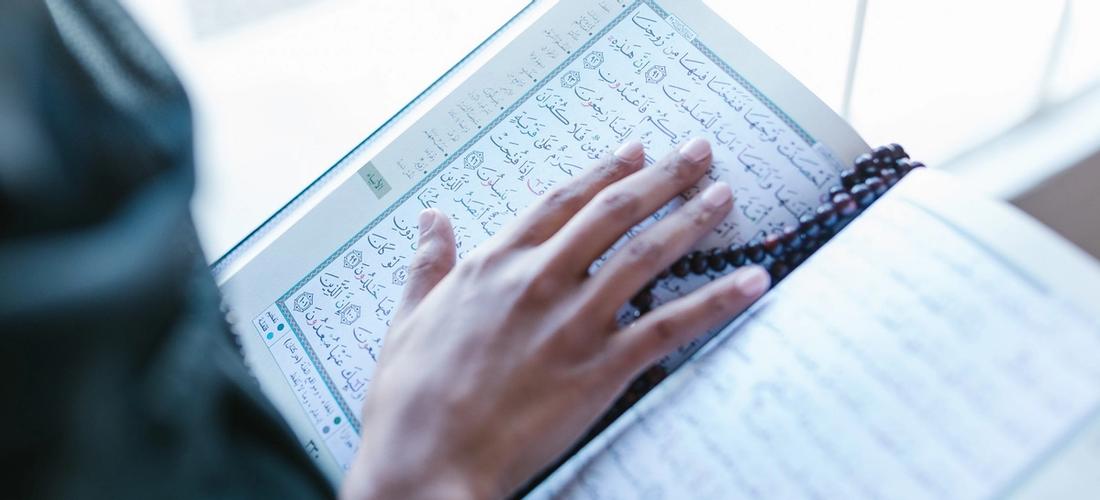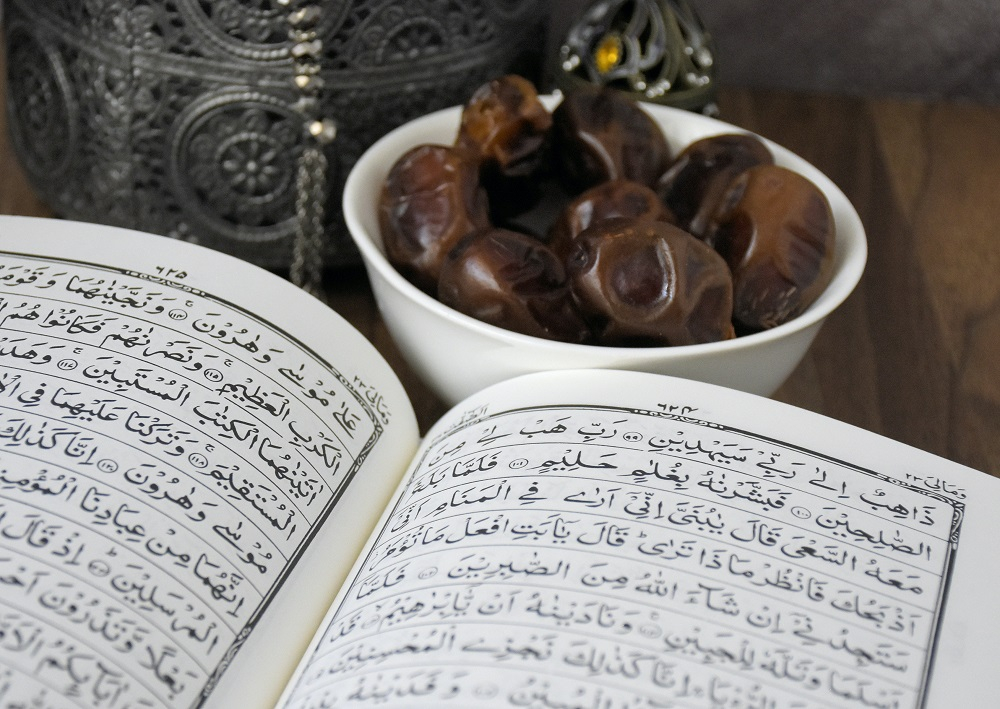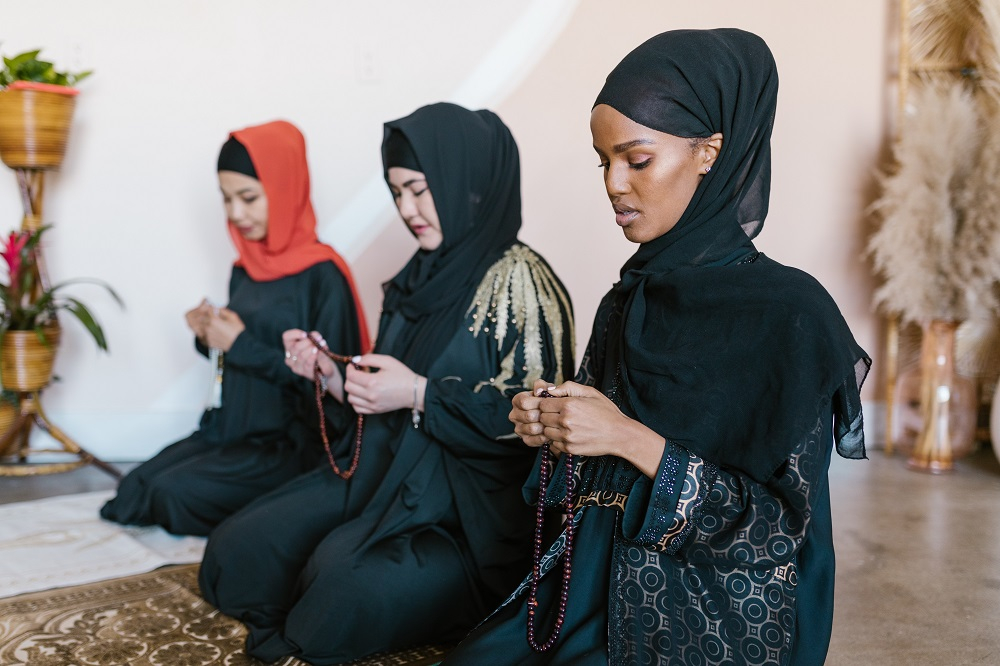On Intentions & Mercy – Quran Verses that Inspire Us to Seek Allah's (S) Blessings
|
Apr 16, 2021
|
6 MIN READ

Image source: RODNAE Productions from Pexels
"Ahlan wa sahlan, ya Ramadan!” (Welcome, Oh Ramadan!).
Every time I think about the holy month, that song, which I listened to a long time ago, plays in my head. Children sing the “welcome to the month of Ramadan” song in Arabic, in which the lyrics talk about all the things people do during the month, including fasting, reading Quran, praying, making dhikr (remembrance), giving sadaqa (charity) and looking for Laylatul Qadr. I always get excited about the potential reward and peace Ramadan offers observers every year. “Ahlan wa sahlan, ya Ramadan” is one of the things that stokes me for a month that is unlike any other for billions of Muslims around the world.
For those who are not Muslim, it may seem weird that anyone would look forward to a month (29-30 days) of fasting (from food and drink and yes, even water as well as a few other things). But every year Muslims gear up to get down with the hunger and thirst.
Ramadan entails not only fasting but also increased devotion and worship of God, allowing worshippers to focus on self-reflection and build connections with their Creator (S) by better understanding who He is and our relationships with Him.
The month is split into three ten-day sections, each focusing on a particular blessing Allah (S) offers to us, the first being the days of mercy. Also important is that we ideally enter Ramadan equipped with a pile of intentions to do good and achieve our set spiritual goals and strengthen our connection with Allah (S). Reflecting on one’s intent is an essential part of Islamic worship.
So, let’s delve into how the Quran and hadith emphasize the importance of intentions as well as verses related to the mercy of Allah (S) that speak to the first ten days of Ramadan (and beyond). Taking it back to our holy book and the words of the Messenger (saws) will Insha’Allah inspire us to seek the blessings Allah (S) offers us through our fasting and worship.

Image source: khats cassim from Pexels
Why are Our Intentions Towards Allah (S) So Important?
Intentions (niyah) are the foundations of Islamic worship (ibadah), the crux of which is seeking Allah’s (S) pleasure. The Creator (S) emphasizes how He prioritizes intentions. In the Quran, Allah (S) says:
“Allah does not impose blame upon you for what is unintentional in your oaths, but He imposes blame upon you for what your hearts have earned. And Allah is Forgiving and Forbearing.” [Quran 2:225]

“And there is no blame upon you for that in which you have erred but [only for] what your hearts intended.” [Quran 33:5]

Our actions do not always jibe with what we intended. A person may mean well, but things can end badly. Conversely, people may engage in apparently good and even pious acts while harboring ill intent.
During the time of the Prophet Muhammad (saw) the hypocrites prayed to appear to be Muslim. Allah (S) revealed their behavior, and the hypocrites feared that He would show what was in their hearts and how it contradicted their actions.
Allah (S) says:
“Indeed, the hypocrites [think to] deceive Allah, but He is deceiving them. And when they stand for prayer, they stand lazily, showing [themselves to] the people and not remembering Allah except a little … “

“They hypocrites are apprehensive lest a surah be revealed about them, informing them of what is in their hearts.” [Quran 9:64]

The above ayah refers to hypocrites who behaved in ways that made them appear to be believers in the presence of the Prophet Muhammad (saw) while they hid their rancor for him (saw) and the disbelief in their hearts. Allah explains that they feared being discovered. Their intentions never matched their actions, and this is the key point. The verse serves as an important reminder that we must reaffirm our beliefs and intentions for our actions and worship, that there should be no dichotomy between the two.
The Prophet Muhammad (saw) also placed importance on having good intentions:
"Actions are according to intentions, and everyone will get what was intended.” [Bukhari and Muslim]
Constant introspection about our intentions remains essential as we navigate Ramadan, exploring ourselves and our relationship with Allah (S). What influences our thoughts? What motivates our actions and worship? Whom are we trying to please? Asking ourselves these questions on a regular basis may help us rectify our intentions towards Allah (S).
The Days of Mercy

Image source: RODNAE Productions from Pexels
For many Muslims, the emphasis on mercy (rahmah) during Ramadan comes from the following hadith, which reports that the Prophet Muhammad (saws) said:
“It (Ramadan) is the month, whose beginning is mercy, its middle, forgiveness and its end, emancipation from the fire.” [Ibn Khuzaymah 3/191, no. 1887]
It’s important to note that this hadith is weak, and I usually do not highlight it, but many Muslims look to it as a point of reference for how they should center mercy, forgiveness and salvation during Ramadan. Besides, focusing on Allah’s (s) mercy, forgiveness and earning a way to escape His punishment is something we should seek inside and outside of Ramadan. It isn’t just reserved for this holy month. However, this month is one of increased blessings, and it would benefit worshippers to intensify anything that will increase our iman, positively impact our relationships with Allah (s) and garner our success in this life and the akhirah (hereafter).
Mercy was something I sought during the entire beginning of 2021 when I struggled with multiple illnesses. As I lay in bed, recovering from emergency surgery and one illness after the other, I begged Allah (S) for His mercy with extreme fervor. When I began to feel better, I looked forward to Ramadan and a chance to gain more of it during the month.
Like many Muslims, I spend more time reading the Quran and reflecting on its meaning, hopeful in the mercy of Allah (S) that emanates throughout the holy book. Here are some verses on Allah’s (S) mercy that impact me.
1. “And obey Allah and the Messenger that you may obtain mercy.” [3:132]

Obedience can be difficult for humans. So much of who we are hinges on our sense of autonomy, but the ayah above reminds us that submitting to Allah (S) and the Messenger (saws) leads to enjoying our Creator’s (S) mercy.
2. “So those who believe in Allah and hold fast to Him – He will admit them to mercy from Himself and bounty and guide them to Himself on a straight path.”

The world is a terrifying place. Social media constantly reminds us of the injustice, pain and cruelty surrounding us. This ayah reminds us that there is mercy for those who hold fast to Allah (S), seeking his protection in all of the temporal mayhem.
3. “God accepts the repentance of those who do evil in ignorance and repent soon afterward; to them will God turn in mercy: For God is full of knowledge and wisdom … “

"The believing men and believing women are allies of one another. They enjoin what is right and forbid what is wrong and establish prayer and give zakat and obey Allah and His Messenger. Those - Allah will have mercy upon them. Indeed, Allah is Exalted in Might and Wise." [9:71]

The above ayah reminds me of the direct connection between ibadah and gaining Allah’s (S) mercy.
4. “He said, ‘And who despairs of the mercy of his Lord except for those astray?’"

While I was sick, the ayah constantly came to the forefront of my mind. When we are in distress, it can be easy to forget the presence of our Creator’s (S) mercy. The verse shows us that doing so will cause people to go astray.
The way to success in this life and the akhirah is through Allah’s (S) mercy, and Ramadan is open for us to reap Allah (S)’s mercy for whatever we need. Let’s spend this Ramadan purifying our intentions and searching for ways to be obedient and hold fast to our Creator (S) so we may gain His mercy.
Subscribe to be the first to know about new product releases, styling ideas and more.
What products are you interested in?

